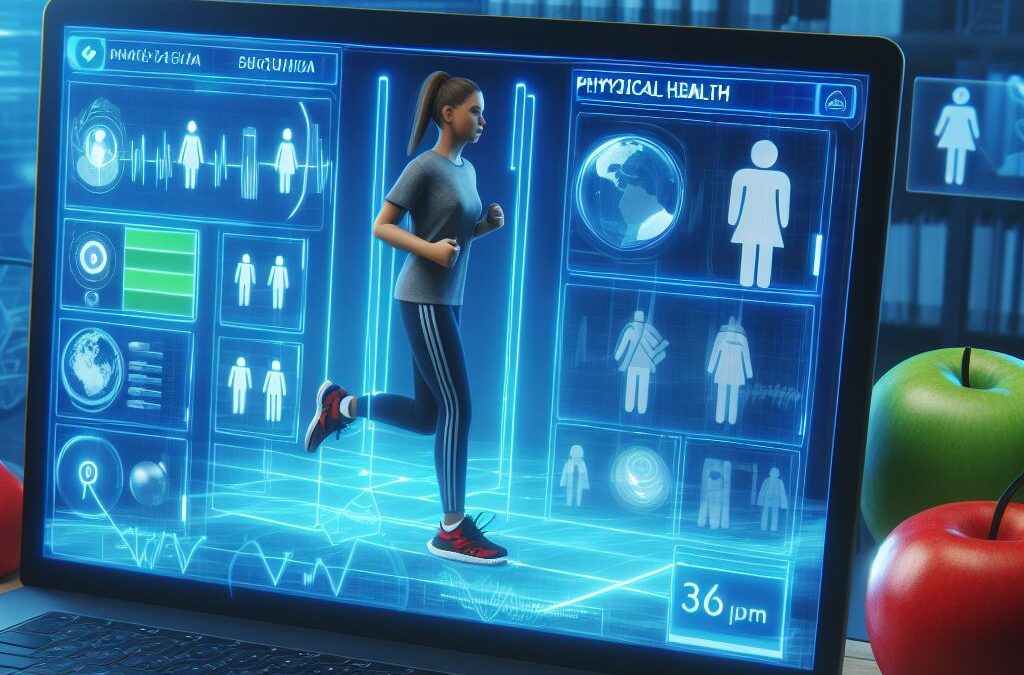
Are you struggling to maintain a healthy lifestyle while navigating the demands of a virtual learning environment? In an age where screen time has significantly increased and traditional classrooms have often transformed into digital spaces, finding ways to prioritize physical health can be a challenge. With the rise of online courses and remote education, students and teachers alike are spending more hours in front of their computers, leading to a sedentary lifestyle that can negatively impact physical wellbeing.
With the recent uptick in distance learning, ensuring optimal physical health has never been more crucial. Engaging in a sedentary lifestyle, which can be a byproduct of long hours spent at a computer, poses significant health risks. To counteract these, it’s vital to integrate activities that promote bodily vigor and vitality into your daily routine.
A functional workspace not only increases productivity but also minimizes the physical strain that can lead to health issues. Adjust your computer screen to eye level and invest in an ergonomic chair to support your posture. Frequently alternate between sitting and standing if you have an adjustable desk, and take regular breaks to stretch and relax your muscles.
Virtual fitness classes are an excellent resource for staying active. Whether you prefer high-intensity interval training, yoga, or dance workouts, there’s a spectrum of online classes to suit every interest and fitness level. Schedule these classes just as you would academic obligations to maintain consistency and build a robust physical routine.
Since sedentariness can creep up unnoticed, take the initiative to inject movement into your routine. Simple actions such as taking the stairs, walking around while on phone calls, or doing quick exercise sets during study breaks can make a significant difference in stimulating circulation and muscle activity.
Upholding Mental Wellbeing Amidst Virtual Studies
As important as physical fitness is, mental health is equally essential in a virtual learning environment. Without proactive strategies, students may grapple with feelings of isolation, stress, and burnout.
Create a structured daily schedule that delineates time for studying, breaks, meals, and relaxation. By doing this, you personify discipline, which not only boosts academic performance but also provides a sense of control and a psychological breather amidst the throws of academia.
Mindfulness sessions serve as a tranquil haven from the hustle of digital learning. Participating in guided meditations or breathing exercises can significantly reduce stress and anxiety levels. Such practices teach you to cultivate a sense of presence, keeping worries about past events or future obligations at bay.
Physical distancing should not translate to social isolation. Maintain regular contact with peers, family, and friends through video calls or social media. Engaging in discussions and sharing experiences with fellow virtual learners can foster a supportive community that bolsters mental wellness.
Encouraging Overall Wellness Through Challenges and Activities
Taking a holistic approach to health is pivotal, and wellness challenges are a playful yet effective method of promoting such a balance. These challenges can be in the form of daily hydration goals, sleep tracking, or nutrition monitoring, which encourage you to optimize various aspects of your health.
Participating in virtual wellness challenges adds excitement to your health journey. These challenges often include step competitions and mindfulness streaks, fostering a sense of camaraderie and healthy competition. Engage in these activities to make your wellness journey more enjoyable and interactive. Joining virtual challenges allows you to track your progress, connect with others, and stay motivated. Embrace the opportunity to push yourself and explore new aspects of wellness. Whether it’s reaching step goals or practicing mindfulness, these challenges offer a dynamic way to prioritize your health. Take advantage of virtual platforms to enhance your well-being and connect with like-minded individuals globally.
Utilize apps or journals to monitor your physical activity, diet quality, and mental health status. Consistent tracking provides insight and allows for reflection on achievements, no matter how small. Celebrate your victories and use setbacks as learning opportunities. Whether it’s reaching fitness milestones or improving mindfulness, tracking helps maintain accountability and fosters a sense of achievement. Embrace the process of self-improvement and let tracking be your guide to a healthier lifestyle.
Health and Wellness Resources
The internet is a treasure trove of virtual health and wellness resources. From fitness influencers offering free workout tutorials to universities providing complimentary access to wellness platforms, there’s an abundance of content to aid in your health journey. Don’t hesitate to research and utilize these tools; they have been designed to assist students like you in navigating the unique challenges of a virtual learning environment.
Virtual fitness platforms often give users access to a diverse array of workout programs. Explore options that align with your interests and physical goals. Some platforms might offer free trials or student discounts, so look out for those to make fitness both accessible and affordable.
Several apps focus exclusively on mindfulness and meditation, offering sessions that range from beginner to advanced levels. Whether you need a quick five-minute decompression or a more extended relaxation period, there’s likely an app that fits your needs.
Connecting with communities dedicated to wellness can enhance motivation and provide you with valuable support. Online forums, social media groups, and virtual clubs often exchange tips, experiences, and encouragement, helping you to stay engaged and committed to your health.
Balancing physical and mental health in a virtual learning environment demands a disciplined yet flexible approach. By creating an ergonomic workspace, embracing virtual fitness classes, engaging in mindfulness sessions, and participating in wellness challenges, you can build a robust foundation for both your academic endeavors and overall well-being. Always remember that remote wellness activities should not just be an addendum to your routine but rather an integrated part of your daily life, crucial for long-term success and health.
